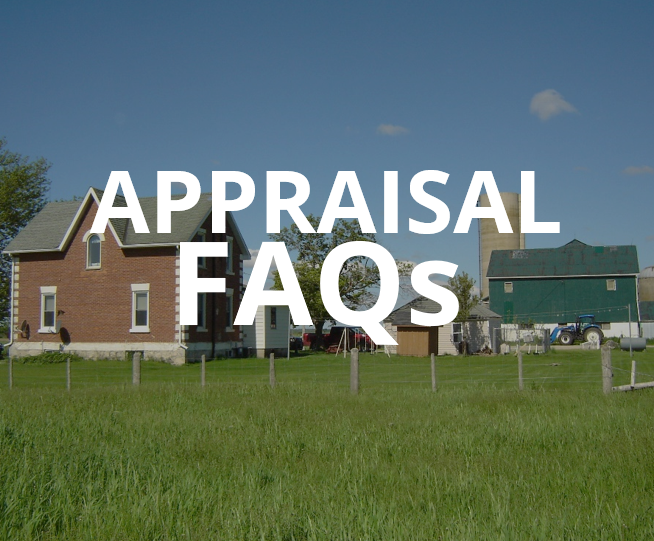What you should know about the appraisal process
We know that whether you’re a buyer or a seller, the appraisal process – especially for residential or agricultural properties – can be nerve-wracking. Here are answers to some of the questions we get asked most often.
Why do I need an appraisal?
Contrary to popular belief, appraisals aren’t conducted because the bank (or anyone else involved in the transaction) is suspicious or looking for problems. It’s simply a way for a lending institution to feel confident about an independent valuation of the property so they don’t expose themselves to more risk. While appraisers are always looking for the objective market value of a property, the truth is that everyone is happiest when the appraised value is consistent with the sale price.
Why do I have to pay so much for an appraisal?
Because AIC-certified appraisers are professionals with specialized knowledge and training, who put their professional reputation and credibility on the line when they provide a value. It’s the difference between using a bookkeeper and using an accountant: In the event of a dispute or legal challenge, it’s the certified professional whose value must stand up.
Do appraisers care about how clean my house is?
Generally speaking, not really. Appraisers are trained to look beyond superficial things like unmade beds or a messy rec room, because these things won’t really affect the market value of the home in the event it is to be sold.
However, a house that needs extreme cleaning (like replacing soiled and odiferous carpets or repainting because walls are sticky with nicotine from smoking in the house) will generally come out with a value less than one that is move-in ready – because these things affect the overall value of the property on the open market.
Can I speak to the appraiser?
Appraisers aren’t like home buyers – they don’t need to be shown around the property or have features pointed out to them. Their job is to come up with an objective, independent valuation. In fact, most lending institutions and estate professionals recommend that you not be home when the appraiser visits – it’s easier for everyone.
However, if you have done extensive renovations or updates on your home, especially if they are not immediately obvious (like external termite prevention or updated drainage pipes or an underground sprinkler system), you may want to show the paperwork for this to the appraiser.
What if I’m not happy with the appraiser’s valuation?
One of the reasons that banks, lawyers and others choose to engage an accredited appraiser is to ensure that it is as objective and independent as possible: The appraiser has no vested interest in the value s/he provides, but does have to ensure their value can hold up to scrutiny in the event of a dispute.
It’s important to keep in mind that accredited appraisers, like accountants or engineers or other professionals, are ‘on the hook’ for their professional judgements, so they have every reason to be as accurate as possible.
Of course, appraisers are human and do sometimes make mistakes. If you think that the valuation provided by the appraiser is incorrect or left out pertinent details, you can request a second opinion. (Depending on the situation, this may mean an additional cost.)
Have more questions?
We’d be happy to answer them. Just get in touch.


